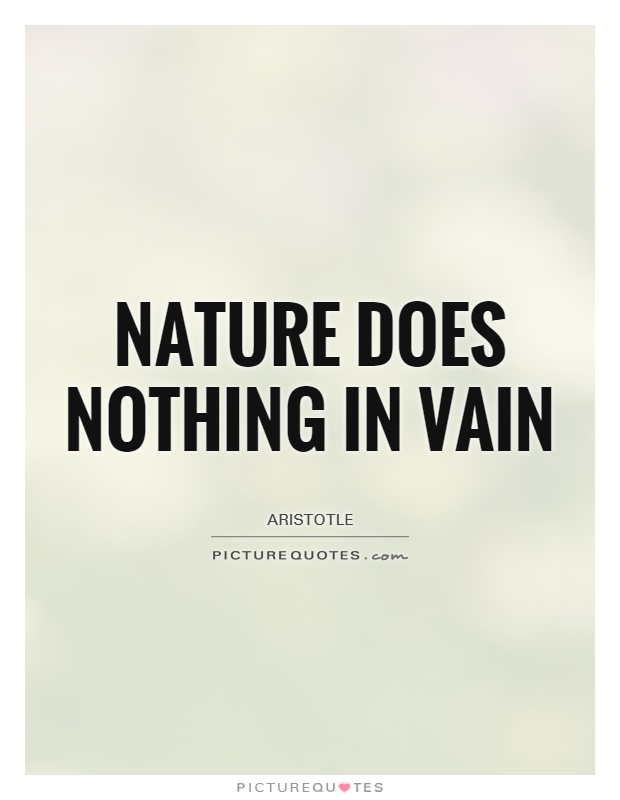Nature does nothing in vain

Nature does nothing in vain
Aristotle, the ancient Greek philosopher, believed that nature does nothing in vain. This concept is central to his philosophy and can be found throughout his works, particularly in his writings on biology and ethics. Aristotle believed that everything in nature has a purpose and that nothing exists without a reason.In his work "On the Parts of Animals," Aristotle explores the idea that every part of an organism serves a specific function. He argues that nature is purposeful and that each part of an organism is designed to fulfill a specific role in the overall functioning of the organism. For example, he discusses how the heart pumps blood throughout the body, the lungs provide oxygen to the blood, and the brain controls the body's functions. According to Aristotle, these organs and their functions are not random or accidental but are instead carefully designed by nature to serve a specific purpose.
Aristotle also applies the concept of nature doing nothing in vain to ethics and human behavior. He believed that humans have a natural purpose or function, which is to live a life of virtue and fulfill their potential as rational beings. According to Aristotle, living a virtuous life is the key to happiness and fulfillment, as it allows individuals to achieve their full potential and live in harmony with nature.












 Friendship Quotes
Friendship Quotes Love Quotes
Love Quotes Life Quotes
Life Quotes Funny Quotes
Funny Quotes Motivational Quotes
Motivational Quotes Inspirational Quotes
Inspirational Quotes